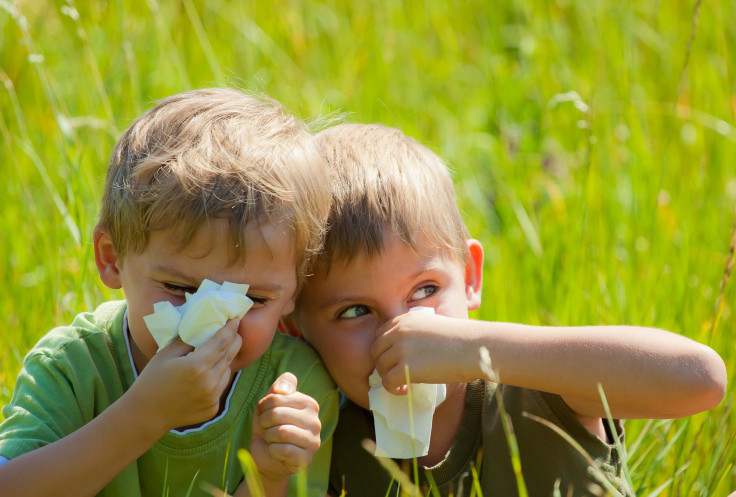Hygiene Hypothesis In Action: Has Our Cleanliness Obsession Made Younger Generations More Allergy-Prone?

Although it may be hard to believe, cleanliness may not be the solution to all our health problems, but rather the cause. According to a leading immunologist, a little bit of germs help build a strong immune system and being too clean has made younger generations more vulnerable to allergies and disease.
Cleanliness is everywhere and if you’re one of the few who don’t take note if something is remarkably clean you’re bound to notice when it not. As a society we have become obsessed with keeping yourselves and our surroundings spotless. Professor Graham Rook, a professor in medical microbiology and immunology at University College London, believes this clean-obsession may be the root of many of our allergy problems. According to Rook, although being clean is a good thing, perhaps we’ve taken it a bit too far. ‘If a parent picks up the dummy [pacifier] right away and sterilises it or replaces it with a new clean one, that child has a considerably greater chance of having eczema and asthma,” Rook explained, as reported by The Daily Mail.
Recent figures seem to back Rook’s theory. Health conditions such as asthma, hay fever, and food intolerances are increasing, and hospital admissions for allergic reactions are steadily increase, jumping by 8 percent in the last 12 months, The Daily Mail reports. According to the Food Allergy Research and Education, food allergies among children have increased by approximately 50 percent between 1997 and 2011. It is estimated that currently up to 15 million Americans have food allergies. These numbers grow as ages get lower and now about 1 in every 13 children under the age of 18 is afflicted with a potentially deadly food allergy.
Although most of us are born with a healthy immune system, according to Rook, a constant interaction with germs helps to keep our immune systems in peak condition. Without these regular stimulations, our immune systems may become confused and begin to treat otherwise harmless interactions as a threat. ‘It will do something completely pointless like attacking grass pollen wafting past in the breeze, or attacking the neighbour’s cat when it happens to walk past and then you are going to have allergic problems,” Rook added, as reported by The Daily Mail.
According to Rook some effective ways of picking up healthy bacteria are eating food that’s fallen on the floor, kissing, and taking countryside walks. Bringing a dog into the house is also a great way of introducing healthy bacteria because they “act as a conduit between individuals,” spreading bacteria from one family member to the next through “cuddles.”
Rook’s idea is not new. It has been suggested for years that a bit of dirt may be our best chances of avoiding allergies. "We’ve developed a cleanlier lifestyle, and our bodies no longer need to fight germs as much as they did in the past. As a result, the immune system has shifted away from fighting infection to developing more allergic tendencies," Marc McMorris, a pediatric allergist at the University of Michigan Health System, told LiveScience all the way back in 2007.
Rook,however, is not advising that we completely throw away our cleaning routines, but rather find a healthy medium between the two. Practices such as covering our sneezes and disposing of dirty tissues need to be upheld. Rook only suggests that we re-evaluate our view of germs and implement ways of reintroducing them into our lives, and more importantly the lives of our children.



























